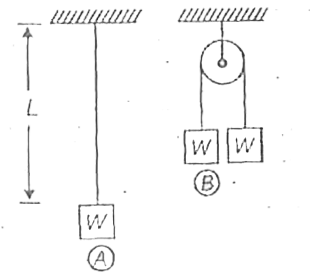Why is the fuse wire fitted in a porcelain casing?
Step-by-Step Solution:
1. Understanding the Purpose of a Fuse:
- A fuse is a safety device used in electrical circuits to prevent excessive current flow, which can lead to overheating and potential fires.
2. Material Selection for Fuse:
- The material used for the fuse wire must be able to withstand high temperatures and should not conduct electricity when not intended to.
3. Properties of Porcelain:
- Porcelain is a type of vitrified pottery that is known for its insulating properties. It does not conduct electricity, making it safe to handle.
4. Insulation and Safety:
- By fitting the fuse wire in a porcelain casing, it ensures that the user does not get an electric shock when handling or replacing the fuse. The porcelain acts as an insulator.
5. Comparison with Other Materials:
- Unlike earthenware, which is porous and opaque, porcelain is fine-grained and translucent. This quality enhances its strength and insulation properties.
6. Conclusion:
- Therefore, the primary reason for fitting the fuse wire in a porcelain casing is to ensure safety by preventing electrical conduction and protecting users from electric shocks.
---
- A fuse is a safety device used in electrical circuits to prevent excessive current flow, which can lead to overheating and potential fires.
- The material used for the fuse wire must be able to withstand high temperatures and should not conduct electricity when not intended to.
- Porcelain is a type of vitrified pottery that is known for its insulating properties. It does not conduct electricity, making it safe to handle.
- By fitting the fuse wire in a porcelain casing, it ensures that the user does not get an electric shock when handling or replacing the fuse. The porcelain acts as an insulator.
- Unlike earthenware, which is porous and opaque, porcelain is fine-grained and translucent. This quality enhances its strength and insulation properties.
- Therefore, the primary reason for fitting the fuse wire in a porcelain casing is to ensure safety by preventing electrical conduction and protecting users from electric shocks.
Topper's Solved these Questions
- HOUSEHOLD CIRCUITS Book:ICSEChapter:HOUSEHOLD CIRCUITS Exercise:EXERCISE -9(B) (MULTIPLE CHOICE TYPE)
Explore 2 Videos
- HOUSEHOLD CIRCUITS Book:ICSEChapter:HOUSEHOLD CIRCUITS Exercise:EXERCISE -9(A) (MULTIPLE CHOICE TYPE)
Explore 3 Videos
- FORCE Book:ICSEChapter:FORCE Exercise:EXERCISE 1( C) Multiple Choice questions
Explore 2 Videos
- MACHINESBook:ICSEChapter:MACHINESExercise:EXERCISE-3(B) NUMERICALS
Explore 11 Videos
Similar Questions
An electric iron is rated at 220 V, 2 kW.
Why is the fuse absolutely necessary in a power circuit?
View SolutionHow does the (i) thickness and (ii) length of a fuse wire depend on its current rating?
View SolutionFuse wire is a wire of :
View SolutionWhy is it necessary to have an earth wire installed in a power circuit, but not in a lighting circuit ?
View SolutionIf in case A, elongation in wire of length L is l then for same wire elongation in case B will be

View SolutionWhat is the role of fuse, used in series with any electrical appliance? Why should a fuse with defined rating not be replaced by one with a larger rating?
View Solution(i) What is the function of earth wire in electrical instruments?
(ii) Explain what is short circuiting an electric supply.
(iii) What is the usual current rating of the fuse wire in the line to feed?
View SolutionWhat is the function of a fuse?
View SolutionA fuse wire with radius 1 mm blows at 1.5 amp . The radius of the fuse wire of the same material to blow at 3 A will be
View SolutionThe earthing of an electric appliance is useful only if the fuse is in the live wire. Give the reason.
View Solution